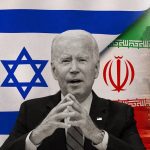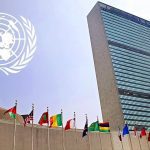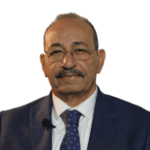The contagion of coups has recently proliferated in West Africa. On 24 January 2022, Paul-Henri Sandaogo Damiba, head of the Patriotic Movement for Safeguard and Restoration (MPSR) overthrew the Burkinabe President Roch Marc Kabore. Similarly, in September 2021, Guinea witnessed a military coup that deposed President Alpha Condé and, in August 2021, a coup ousted Mali’s transitional government.
This wave of coups, failure of the democratic transitions, and the faltering of transitional periods in West African countries dominated the agenda of the 35th African Union (AU) Summit, given their serious repercussions on the stability and security of West Africa, including the threats posed by security liquidity, the growing influence of terrorist groups, and the change of the strategic equation with the intervention of external forces in these countries with the aim of exploiting chaos and insecurity to serve their interests and find a new foothold for them in the region.
Catalytic Drivers
The terrorist attack on Inata gendarmerie detachment in Burkina Faso on 14 November 2021 was a major event that marked a point of no return leading, two months later, to a coup that came against failure of the Burkinabe president’s political approach to combating terrorism. Amid the escalating discontent within the Burkinabe military and among the public, on 22 January 2022, violent demonstrations broke out in Ouagadougou and Bobo-Dioulasso, calling for restoring security.
The second day of protests witnessed shooting inside several military barracks in Ouagadougou, ending up with six officers presenting a list of six demands, including replacement of the chief of staff and the director of the intelligence service, i.e. Agence nationale de renseignements (ANR), to address deficiencies in the government’s performance on counterterrorism. On 24 January 2022, the Burkinabe president was overthrown.
Overall, there are several salient factors that trigger the recurrence of coups in Burkina Faso and their prevalence in West Africa which can be detailed as follows:
- Intertwining Security and Political Issues: The undermining role of security institutions entrusted with maintaining security and stability in West Africa, the mounting security threats, the significant security vacuum, the growing political crises, the positive correlation between the spread of terrorism and unconstitutional change, and the deteriorating economic and humanitarian conditions are all factors that represented a pretext for taking over power. Over the past period, the public’s mistrust in the ability of West African presidents to stop the wave of violent extremism and achieve stability in their countries has been pushed to unprecedented levels. For instance, in 2021, the Burkinabe forces proved inadequately equipped to deal with insecurity, with the number of accidents doubling between 2020- 2021 to reach more than 1,100 attacks, i.e. a number that is greater than the violent incidents recorded in Mali and Niger together over the same period. The widespread instability caused by violence and terrorist attacks has also brought about a humanitarian crisis, with nearly 1.5 million people forcibly displaced within Burkina Faso.
Notably, Burkina Faso has weaker security forces compared to most West African countries, its army is ill-equipped to deal with hit-and-run tactics, and its police force outside the capital isn’t adequately equipped. Moreover, the security landscape in Burkina Faso has been disrupted, with the government adopting a decree, in 2020, that provides for establishing self-defense groups and allows them to carry arms to defend people and protect property, a direction that has negatively contributed to a complex security landscape exemplified by the escalation of tensions between ethnic components in Burkina Faso.
- Elites’ Association with Criminal Gangs and Terrorism: The rivalry between the political and military elites to take over a percentage of organized crime funds from drug smuggling and human trafficking in Guinea-Bissau, amid ease of cross-border smuggling from West Africa to European and Latin American countries, provided a gateway for the flow of Al-Qaeda-affiliated terrorist groups in the Islamic Maghreb to various regions of these countries, to involve in smuggling weapons and drugs, particularly in the three-country point joining Burkina Faso, Mali, and Niger. In effect, Burkina Faso serves as a hub for the illicit trafficking of goods such as light weapons, drugs, precious stones, livestock, wood, coffee, and chocolate. Al-Qaeda in the Islamic Maghreb (AQIM) has succeeded in integrating with pre-existing smuggling networks, infiltrating into remote areas with easy access to West African ports, which provided them with new routes for arms and drug trafficking.
- Safe Incubators of Terrorism: West Africa, particularly the Sahel countries (Mali, Chad, Niger, Burkina Faso, and Mauritania) and the Lake Chad countries (Nigeria, Niger, Chad, and Cameroon), created fertile grounds for the proliferation and expansion of jihadist groups and terrorist organizations from these hotspots boiling with intractable conflicts, political and economic crises, humanitarian and environmental disasters to new areas of influence in the coastal countries in the Gulf of Guinea. This caused terrorism to become a cross-border phenomenon, intertwining with other phenomena related to organized crime and illegal immigration. Burkina Faso provides a typical example of the expansion of the Islamic State (IS) and Al-Qaeda in Africa. These organizations have capitalized on the volatile security situation in the border areas in Burkina Faso to launch more attacks and consolidate their presence.
Now, Burkina Faso, which was once immune from terrorism, has become a target for terrorist organizations that stepped up its attacks in the north and north-eastern regions of the country, amid lack of humanitarian support and absence of the state in these areas, which made them a safe haven for terrorist organization. Over 2021, Burkina Faso witnessed several terrorist attacks. For instance, in June 2021, the country witnessed the bloodiest attacks in the northern village of Solhan. Similarly, in August, there was an attack on a military convoy and, in November 2021, Burkina Faso’s security forces came under a deadliest attack at Camp Inata. The escalation of violence resulted in mistrust of the public and the military in the government’s ability to combat terrorism.
- Humanisation of External Interventions (Exacerbation of the Humanitarian Crisis): Over the past 10 years, since the intervention of the international community in Mali, the situation has worsened and the number of members of terrorist organizations and terrorist attacks have increased, let alone the grave violations of human rights by the security forces, including extrajudicial killings and ethnicity-based arrests. Despite the surge in counter-terrorism operations in the Sahel, jihadist groups have proven more resilient, which resulted in disastrous consequences, with the number of fatalities in Burkina Faso rising to sevenfold between 2018 and 2019. Foreign aid has not been translated into projects that benefit the local population in Burkina Faso –an agriculture-dependent country considered the world’s poorest nations– with more than half of its population living on $1.90 a day. While there has been considerable economic growth recently, poverty levels are still significant due to the rapid population growth rates and impacts of climate change that affect crops and food security. The unemployment rate in Burkina Faso amounts to 50 percent. Poverty, along with the collapse of state agencies, results in significant gaps in access to security and justice services and creates a fertile ground for social tensions and the outbreak of violence.
Regional Implications
Circumstances and mechanisms of coups differed from one country to another, notwithstanding the common denominators between Western African countries in terms of the inability of their governments to provide basic services to their people, the widespread corruption, and vulnerability of state institutions. Not all countries that witnessed coups suffer violent insurgency from terrorist groups. However, in their entirety, coups reflected a major crisis in the political systems in West African countries, amid inadequacy of the Economic Community of West African States’ (ECOWAS) action to deter future coups. Major implications of these coups for the region can be detailed as follows:
- Fearing Repetitive Scenarios: Preparations for the coup in Burkina Faso were comparable to the events that preceded seizure of power in Mali in August 2020. In Mali, a series of attacks on military and civilian targets were followed by mass protests sparked by the growing mistrust in the government of then-Malian President Ibrahim Boubacar Keïta while in Burkina Faso opposition leader, Eddie Kombuego, tried to exploit public discontent over insecurity to stir outrage. The coup in Burkina Faso indicates that the putschists are not worried about the reaction of the ECOWAS. In effect, the ECOWAS sanctions on Mali and Guinea-Conakry failed to curb movements of the military. In Niger, President Mohamed Bazoum had a shaky start in his position with a coup attempted against him in the backdrop of murderous attacks against civilians and the military. Amidst this, the three coastal countries (i.e. Ghana, Togo, and Benin) are racing to protect the vulnerable populations in an effort to stop the unrest, violence and crime leaking over their northern borders.
- Volatile Security Situation: Terrorist organizations capitalize on the security vacuum and political instability that undermine defense cooperation under the umbrella of G5 Sahel Joint Force, which includes troops from Burkina Faso, Chad, Mali, Mauritania, and Niger. The instability in Mali and Burkina Faso gives rise to security concerns in Côte d’Ivoire, their neighbor to the south, which has been experiencing terrorist attacks since June 2020 targeting security forces. The situation in Mali is a major catalyst for instability in the region where the Tuareg Rebellion of 2012 and the ensuing rise of al-Qaeda in the Islamic Maghreb and northern Mali accelerated the collapse of the state and paved the way for the spread of violent extremism in the entire region. Worse, the inability of successive Malian governments to deal with insurgencies and their ties to terrorist organizations has given rise to multiple coups. In many respects, the new crises highlight the heightened risks to security in the region, and ultimately to Europe and the United States.
- Democratic Backsliding: The political turmoil consolidates authoritarian rule that breeds violent extremism, increases transnational crime, and undermines efforts to build democracy. In west Africa, there are three major countries (Burkina Faso, Guinea-Conakry, and Mali) ruled by military forces that came to power by force, despite the sanctions imposed by the ECOWAS, a union that remains unable to curb the contagion of coups in the region. Further, the arrival of the military junta to power in Burkina Faso could be the catalyst for military regimes to help one another against the pressures from the ECOWAS and external partners. Perhaps the decision of Lieutenant-Colonel Mamady Domboya, the interim president of Guinea-Conakry, not to close his country’s borders with Mali reinforces this trend.
Prospects for the Burkina Faso Crisis
Burkina Faso has long enjoyed peaceful coexistence, with its governments’ thrust to address local grievances and create a space for constructive dialogue. However, terrorist organizations targeted it and managed to fuel mistrust between the local population and the government, which resulted in considerable instability and insecurity. Prospects for the crisis can be detailed as follows:
- Return to the Constitutional Order: The new military council, led by Lieutenant-Colonel Damiba, underscored that the security crisis in Burkina Faso comes as a main priority. On 10 February 2022, the Constitutional Council announced Damibia president of the transitional period, until the constitutional order is re-established through the formation of a 25-member committee to draw up a charter and timeframe for the transitional period, hold the elections, and establish transitional institutions capable of turning the transitional period around, towards lifting the sanctions imposed by the ECOWAS union that has long confirmed its keenness to protect democracy and freedom in the region showing no tolerance for illegitimate attempts to take power through unconstitutional means, governed by the 2001 ECOWAS Protocol on Democracy and Good Governance.
- Priorities of the Transitional Period: A series of political reforms regarding the election law, the state of the opposition, and the electoral model in Burkina Faso need to be introduced. Lessons learned from the first transitional period of 2015 may be capitalized on. The National Transitional Council (NTC) suggests the need for a broad consensus among political actors on the reforms that should be undertaken to avoid any obstacles that may cause the transitional period to fail. In his first address to his people, Damiba promised to work towards building a robust system to counter security threats. On 2 February 2022, leaders of the General Staff of the Armed Forces and the National Gendarmerie were changed. The new authorities in Burkina Faso realize the need to intensify social protection and invest in the capabilities of the security forces to confront the various security threats.
- Involvement of External Forces: The coup may result in Burkina Faso’s further engagement with China and Russia, whose opposition groups offered their services to the Military Council to confront the security threats facing the country. Notably, Burkina Faso benefited from Chinese military training, through 72 scholarships for Burkinabe military students and officials at military academies in China. The Chinese investments in Burkina Faso include Smart Burkina, a smart city project funded with $94 million. Having invested heavily in countering terrorism in the Sahel, France isn’t likely to collaborate with the new leadership in Burkina Faso, at least until it takes on its commitment and form a transitional government, particularly amid the increasing pressure from Burkinabe citizens on the authority to use the Russian Wagner Group to bridge the security gap, amid dwindling public support for the French presence given the deteriorating security situation. In December 2021, residents of the city of Kaya blocked a French military convoy carrying supplies to Burkinabe army and accused Barkhane forces of working with the jihadists. If this trend continues, Western support for Burkina Faso may wane.
In short, the success of the “security and development” approach in Burkina Faso remains subject to resolving the security and democracy dilemma, through governance of local security, adopting a comprehensive approach to public security, supporting the democratic path, promoting a culture of good governance, and strengthening mechanisms to curb the waves of coups by taking decisive measures whether through regional bodies such as ECOWAS or continental institutions such as the African Union, and adopting a new approach to address the drivers of instability in West Africa. The current political crisis in Burkina Faso presents an opportunity to review these approaches, particularly with regard to issues of governance. Instead of focusing exclusively on the elections and constitutional changes, more attention should be paid to other dimensions such as dialogue and comprehensive crisis management to avoid political uncertainty that increase insecurity and plunges West African governments into more political turmoil.













